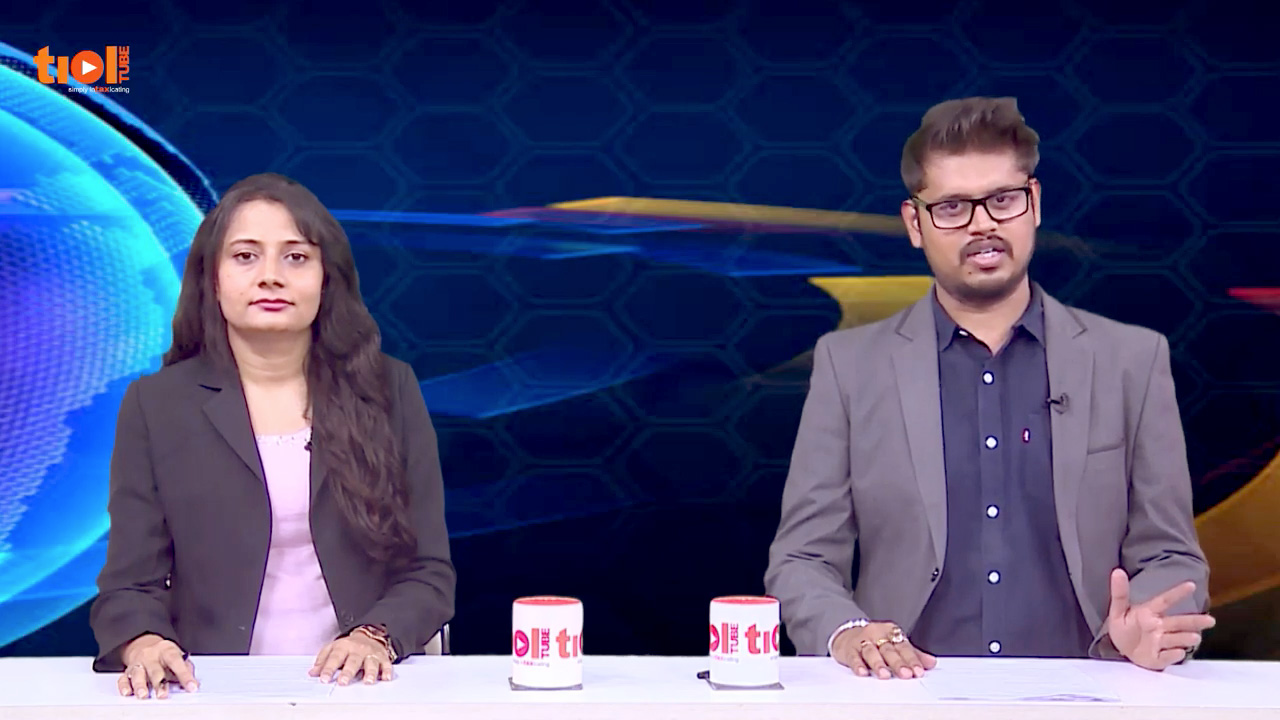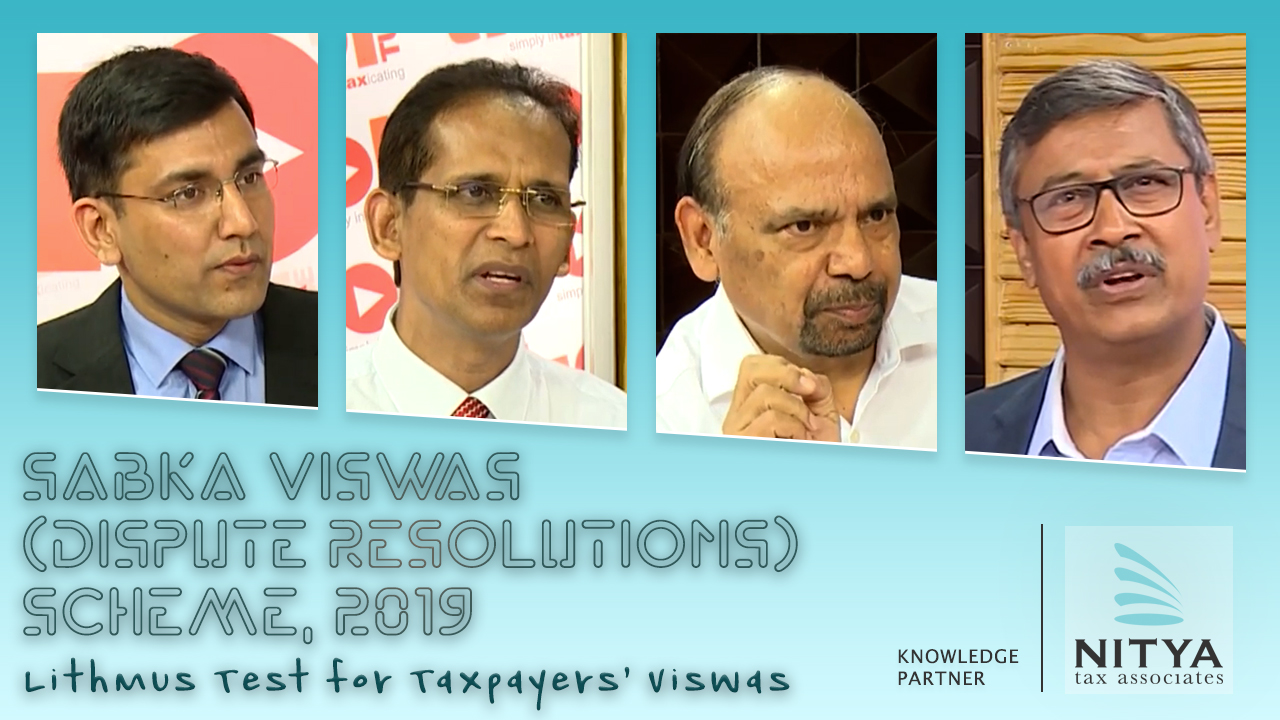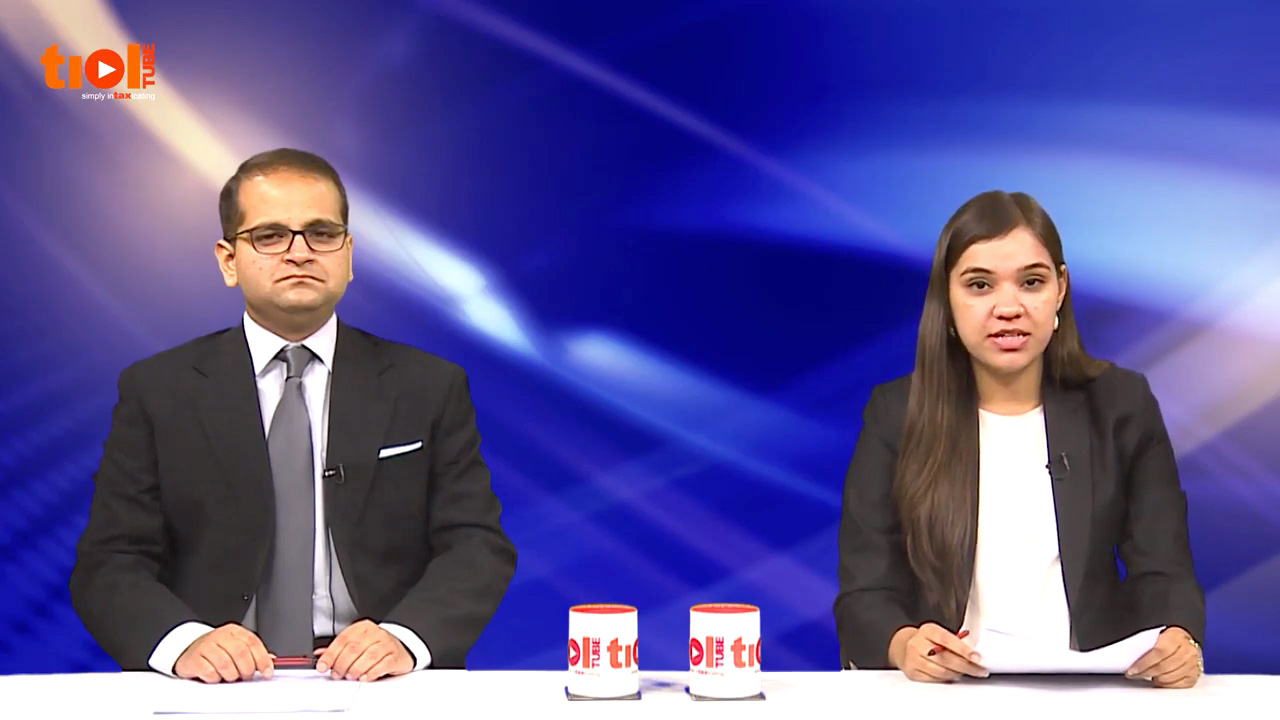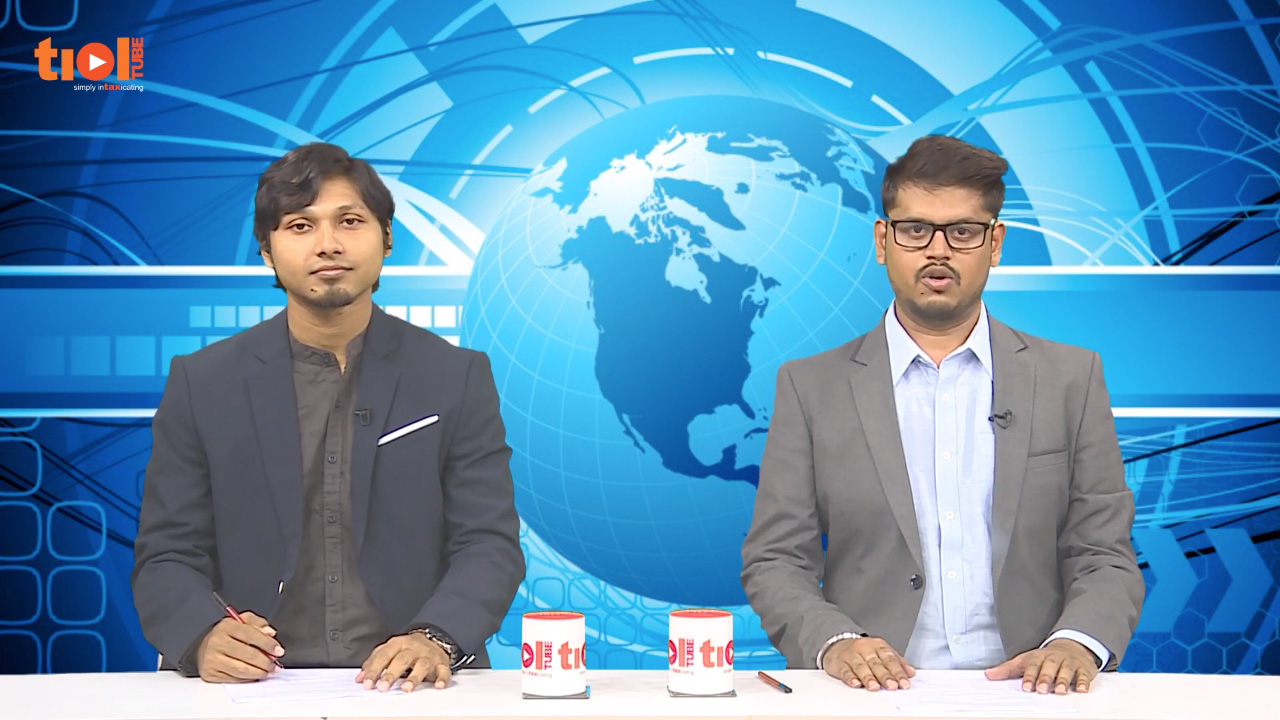|
SERVICE TAX
2019-TIOL-2598-CESTAT-AHM
Jignesh Shah Vs CST
ST - This appeal has been filed by Shri Jignesh Shah, proprietor of M/s Iceberg Business Solutions against confirmation of demand of Service Tax, interest and imposition of penalty.
Held: Assessee was engaged in providing services to ICICI bank relating to processing of pay role of sales executives of ICICI and to work out and timely payment of emoluments of the canvassers and to monitor monthly attendance of canvassers; that apart from the said services they had to motivate the team and ensure employees satisfaction and meet the team whenever needed with a view to sort out matter which ICICI Bank deem it important to be resolved - The assessee in the instant case is an individual and not a Commercial Concern - The notfn 14/04 grants exemption to individuals providing the 'Business Auxiliary Services' - It is apparent that prior to 30/04/2006, no duty can be levied on individuals under the head Business Auxiliary Services: CESTAT
- Appeal allowed: AHMEDABAD CESTAT
2019-TIOL-2597-CESTAT-DEL
Nagar Nigam Vs CCE & ST
ST - The department alleged that the assessee is engaged in providing the services of 'renting of immovable property' which is taxable w.e.f. 1st July 2012, under Section 65 (105) (zzzz) of FA, 1944, and is defined under Section 65 (98) of said Act - The Department observed that assessee has received an amount of Rs. 48,65,25/- as Tahbazari fee for the period w.e.f. 2009-10 to 2014-15 - SCN was issued proposing demand of service tax along with interest at the appropriate rate and the proportionate penalty - The amount under question is admittedly collected by Nagar Nigam Haldwani - Admittedly the authority is existing under Municipal Act, 1960, as came into effect in furtherance of Article 285 of Constitution of India - Section 128 of said Municipal Act clarifies that the amount received by Nagar Nigam from the traders permitting them to carry out their activities within the municipal limits shall be collected in the form of tax - The provision is sufficient to hold that the activity is intended to be a sovereign Act of the Nagar Nigam - Resultantly, the authority below has wrongly considered it as a service being rendered by assessee to the said traders - In such scenario, emphasis on the definition of 'renting of immovable property' under the Finance Act has no more significance - Further, the Government of India, Ministry of Finance has given the clarification on the issue regarding the levy of tax on the services provided by Government or the local authorities to be business entity vide circular - Perusal thereof makes it clear that tax on taxes/cesses or duties are not leviable - Though the clarification is post the impugned period, however, being merely a clarification and otherwise also beneficial to the impugned assessee, the same has to be given retrospective effect: CESTAT
- Appeal allowed: DELHI CESTAT
CENTRAL EXCISE
CX - Appellant before CESTAT against the rejection of their appeal filed against order of the original authority that led to withholding of their claim for refund on grounds of inability to overcome the bar of unjust enrichment.
Held: There is no doubt that section 11B and section 12B of Central Excise Act, 1944, read together, would require that all claims of refund, if established as being not chargeable on the goods that were cleared and sought within the period prescribed therein, would have to be transferred to the Consumer Welfare Fund to guard against unjust enrichment - it is also significant that the appellate authority has approved the decision of the original authority to reject the refund claim despite the finding that it was the bar of unjust enrichment that had not been crossed - the consequence is that the amount has been unjustly retained in the Consolidated Fund of India - in the present instance, neither is there any finding that the application was made beyond the prescribed period or that the amount was due to be discharged as duty liability - hence the failure to transfer the amount to the Consumer Welfare Fund is erroneous - the discrepancy between the price of Rs.850/- indicated in the invoice and lower price affixed on the tins in which the products was supplied to M/s. Finolex Industries Ltd. is not in dispute - furthermore, the higher duty liability, computed in the invoices, had been adjusted by M/s. Finolex by withholding the amounts due to be paid as duty on the subsequent clearance of a consignment in June 2015 - as the packing itself carried the lower retail price, there can be no doubt that the excess duty paid at the time of clearance could not have been passed on to the ultimate consumer even if it is presumed that between the end of May 2005 and end of June 2005 all of the stock had been sold to the ultimate consumers - therefore, the ratio of the decision in the case of Addison and Co. Ltd. - 2016-TIOL-146-SC-CX-LB would not apply to the present instance - the present facts and circumstances also establish that duty was paid in excess by the appellant and that the buyer at the factory gate had refused to pay the additional amount of excise duty charged coupled with the impossibility of the amount charged in excess in the invoice being collected from the customer in view of the price declared on the tins - for the above reasons, the impugned order is set aside and the appeal is allowed : CESTAT [para 4, 6, 7]
- Appeal allowed: MUMBAI CESTAT
CX - (i) Whether the discharge of National Calamity Contingent Duty [NCCD] with cess thereon suffices for the purpose of exclusion from the ambit of rule 2(d) of Cenvat Credit Rules, 2004 [CCR] ? (ii) In the context of ineligibility to cenvat credit of tax paid on services used in common, the legality of recovery in the face of reversal claimed by respondent.
Held: It is pertinent to note that 'GSM mobile handsets' are excisable and, therefore, discharge of any liability of duty of excise would suffice for eligibility to cenvat credit of duty paid on inputs used in the manufacture thereof - the expression 'duty of excise' deployed therein has not been defined in rule 2 of CCR and, as per rule 2(t), "words and expressions used in these rules and not defined but defined in the Excise Act or the Finance Act shall have the meanings respectively assigned to them in those Acts" - t here is no definition of duty in CEA but the entire objective of CEA is embodied in section 3 - the absence of levy of any duty other than cenvat in CEA is unambiguous and it is only the empowerment of section 136 of Finance Act of 2001 that imposes this levy - it would therefore, appear that the duty of excise referred to in rule 2(t) is limited to the duty leviable under the CEA except where the CCR prescribes otherwise - this is made further apparent in rule 3 of CCR, which, while allowing availment of credit of NCCD, restricts its utilization in accordance with fifth proviso in rule 3(4) of CCR - in view of this clear segregation of NCCD from the general pool of cenvat credit, the discharge of duty liability under NCCD would not qualify the goods to be other than 'exempted goods' - this would also be consistent with the scheme of cenvat credit which is intended to ensure that the burden of any indirect tax is borne by the ultimate consumer; the ultimate consumer is the one who is not enjoined to pay tax or duty directly into the exchequer - on any manufactured goods, it is the addition to value which is subject to tax and effect is given to this charge through the mechanism of cenvat credit - to permit the availment of credit of duties/tax paid on inputs/input services utilized in the manufacture of 'GSM mobile sets' would be tantamount to grant of refund of tax that were collected, under authority of law and in accordance with the provisions of law, at the immediately preceding stage - the Bench is, therefore, led to conclude that the respondent herein is within the ambit of rule 6 of CCR - in the light of this finding, their liability cannot but be enforceable - in regard to the next aspect, it is seen that the impugned order has not examined the submissions that the obligation under rule 6 of CCR has been duly discharged by reversal of proportionate credit and that the bar of limitation impedes recovery - the adjudicating authority should have ascertained the correctness of the claim of the respondent that the proportionate of amount of cenvat credit had been reversed and that interest thereon had been paid before issue of SCN - in the light of the lack thereof in the impugned order which precludes the Bench from rendering a decision on the submissions now made by respondent before the Bench, it is found appropriate to set aside the impugned order and remand the matter to the original authority to take a decision afresh on these two aspects - the appeal is disposed of on the above terms : CESTAT [para 5, 6, 7, 9, 10, 11]
- Appeal disposed of: MUMBAI CESTAT
2019-TIOL-2613-CESTAT-MUM
Rainbow Ink And Varnish Manufacturing Company Ltd Vs CCE
CX - Printing ink manufactured by the appellant at their various factories are brought to the 'quick matching centre' (QMC) at Lower Parel, Mumbai on 'stock transfer' and, after manually inter-mixing of concentrates and additives to cater to the customized requirements of printers, are dispatched to the customers - revenue claiming that the definition of transaction value under section 4(3)(d) of CEA requires that assessable value for computing duties should incorporate the cost of services rendered by the appellant at the QMC as well as the 'packing surcharge' recovered from customers on clearance from the QMC - SCN issued demanding differential duty - demand confirmed along with interest, equivalent penalty imposed - duty liability of Rs.6,22,835/- along with interest paid along with interest before issue of SCN and same appropriated along with imposition of equivalent penalty u/s 11AC of CEA, 1944 - on appeal, the Commissioner (Appeals) upheld the O-i-O - assessee in appeal before CESTAT.
Held : According to the AR, the 'place of removal' was the QMC and hence the 'transaction value' should have been that which was recovered from the customers at the 'place of removal' - while the structuring and logic of submission made on behalf of Revenue does appeal to reason, the procedure to be followed in such cases and the determination of value, which the impugned order does not concern itself with, does not - the Bench, however, finds no specific allegation, as must needs be, in the SCN for the detriment that follows of failure to register a 'place of manufacture' and shifting of the 'place of removal' - the distinct separation of the factory of manufacture of 'medium' and the factory of manufacture of 'printing ink', the consequences thereon by non-applicability of section 4(1) of CEA by reference to section 4(3)(c) and 4(3)(d) of CEA and absence of ascertainment of the quantity of 'medium' so cleared from the manufacturing location for determination of differential duty are the fault-lines that disturb the apparent cohesion in the narrative - the Bench is clear that the provisions of section 4(3)(c) and 4(3)(d), which are definitions, are not a substitute authority for imposing duties or computing assessable value for determination of liability - they are intended to be superimposed on the corresponding words in section 4(1) of CEA for ascertaining conformity of the transaction with scope for accepting the transaction value before resort to one or the other of Central Excise Valuation (Determination of Price of Excisable Goods) Rules, 2000 - in the absence of invoking of such provision, in the SCN or reference to in the orders of the authorities below, the Bench is unable to consider the submission made by the AR - the differential duty liability and interest thereon have been duly discharged - in the light of the fault-lines that have surfaced, the inability of the competent authorities to isolate the breach that would lead to invoking of the alternative value, the discharge of duty liability before the issue of SCN and the absence, in the SCN, of any reference to, or evidence of, the ingredients that justify the invoking of the penal provisions in section 11AC of the CEA, the imposition of penalty is without authority of law - accordingly, the order of penalty is set aside and the appeal is allowed to that extent: CESTAT [para 5, 6, 7, 8, 9, 10]
- Appeal partly allowed: MUMBAI CESTAT
2019-TIOL-2600-CESTAT-MUM
Dhoot Compack Ltd Vs CCE & ST
CX - Appellants, engaged in the manufacture of excisable goods, entered into an agreement with M/s. Supreme Packaging and appointed them as 'Del Credere Agent' for the effective and proper guarantee of the solvency of its various customers of contractual relations and effective debt recovery, in order to safeguard the interest of the appellants – during the course of audit, it was noticed by the department that they had availed cenvat credit of ST paid on commission paid to the Del Credere Agent - according to the department, the services provided by the Del Credere Agent are utilized by the appellants for post removal activities and as such they are not covered within the definition of 'input service' – SCNs issued for disallowed the cenvat credit – demands confirmed, penalty imposed - on appeal, the Commissioner (Appeals) rejected the appeals, hence assessee is before CESTAT.
Held: A reading of the agreement between appellant and Del Credere Agent would establish that it is related to the sales promotion - only because some clause of the agreement mentioned that they won't provide any guarantee where the recoveries are held up due to poor quality or quantity of the product supplied by them, does not take it outside the purview of Business Auxiliary Service and in view of that it cannot be said that the services of the Del Credere Agents were exclusively utilized by the appellants for post removal activities only - if that is the situation then it can very well said to be the input service as per rule 2(l) of the Cenvat Credit Rules, 2004 [CCR] - the present issue is squarely covered by the decision of this Tribunal in the matter of Millenium Maketing Co. [ 2015 (39) STR (Tri.Mum.) ] – the Bench agrees with the view taken by the Tribunal in Jodhani Papers Ltd. [ 2015 (39) STR 126 (Tri.Bang.)] also that the words 'upto the place of removal' has been used only in respect of 'few input services' in the definition under rule 2(l) of the CCR and this restrictive clause cannot be applied to all the cases - therefore, the services provided by Del Credere Agents is Business Auxiliary Service and the same is for the promotion of the business of the appellant and therefore it is an 'input service' - the appellant is, therefore, entitled for cenvat credit and the impugned order is liable to be set aside - the appeals filed by the appellant are hereby allowed : CESTAT [para 4, 5]
- Appeals allowed: MUMBAI CESTAT
2019-TIOL-2599-CESTAT-MUM
CCE Vs Korten Pharmaceuticals Pvt Ltd
CX - The issue in dispute is the clearance of 'physician samples' to the 'principal manufacturer', M/s.Novartis India Ltd. [Novartis], between January 2005 and November 2006 by the respondent- the first appellate authority had set aside the order of the original authority confirming duty liability of Rs.32.24 lakhs under section 11A of Central Excise Act, 1944 [CEA] with appropriate interest under section 11AB of CEA besides imposing penalty on the respondent as well as the Managing Director, under rule 25 and 26 of Central Excise Rules, 2002 – Revenue before CESTAT.
HELD: There is no doubt that, prima facie, 'physician samples' are not covered by the prescription in section 4A of CEA and, therefore, subject to the default scheme envisaged under section 4 of CEA - the appellant has been discharging duty liability on the transaction value at which goods are cleared to Novartis on 'principal-to-principal' basis - such transaction value may be market determined or on 'cost plus' basis and adoption of either does not detract from being transaction value – in the case of Sun Pharmaceuticals Industries Ltd. 2016-TIOL-10-SC-CX , the Supreme Court approved the decision of the Tribunal that as long as physician samples are sold and the characteristics for the transaction conform to the enumeration in section 4(1)(a) of the CEA, acceptance of the invoice price is not flawed - as contended by the respondent, there is no evidence on record that the goods are not sold by them to their principal – the clarification issued by CBEC [Circular no. 813/10/2005-CX dated 25.4.2005] has been misconstrued by the central excise authorities inasmuch as it pertains to the clearance of 'physician samples' by the manufacturers themselves - the decision of the Tribunal in the case of Themis Laboratories Pvt. Ltd. [ 2011-TIOL-1189-CESTAT-MUM ] has distinguished the decision of the High Court of Bombay in the case of Indian Drugs Manufacturer's Association 2006-TIOL-292-HC-MUM-CX and the earlier decision of the Tribunal in Sun Pharmaceuticals Industries Ltd. 2009-TIOL-572-CESTAT-AHM - in the light of these judgments and decisions, it is found that the issue is no longer res integra and, accordingly, no reason found to interfere with the order of the first appellate authority - appeal of Revenue is dismissed : CESTAT [para 4, 5, 6, 7]
- Appeal of Revenue dismissed: MUMBAI CESTAT
CUSTOMS
2019-TIOL-2116-HC-MAD-CUS
A Subukhan Vs CC
Cus - Confiscation of Ketamine Hydrochloride, Indian and foreign currencies, gold jewellery and imposition of penalties - Petitioner has challenged the order in original dated 29.03.2019 on the ground that the order of adjudication was passed inordinately after a period of 8 years from the date of issuance of a show cause notice (01.02.2011) and, therefore, on that ground alone, the impugned order of adjudication is liable to be interfered with and set aside.
Held:
+ As against the impugned order-in-original, passed by the adjudicating authority, a statutory appellate remedy is available before the Customs, Excise and Service Tax Appellate Tribunal and such Forum is undoubtedly, an effective alternative Forum where the petitioner is entitled to raise all the grounds by filing an appeal - The Tribunal, being the First Appellate Authority, in this case, will have to certainly go into the merits of the matter in detail and pass orders in accordance with law - Needless to state that as the appellate authority being the fact finding authority as well, the petitioner can approach such authority and agitate the matter by way of filing an appeal - Instead of doing so, the petitioner is not justified in approaching the High Court and filing the present writ petition by raising a technical ground - Such attempt is nothing but to short circuit the whole process, which cannot be entertained, going by the facts and circumstances of the present case - Court has taken the view already in very many cases that as against the order of adjudication, more particularly, in fiscal matters, the person aggrieved has to approach the appellate forum first and agitate the matter therein: High Court [para 4]
+ Perusal of the facts and circumstances of the case laws relied on by the petitioner would show that they are not similar to the one on hand, which in the considered view of the Bench, is more grave and serious in nature and, therefore, mere delay in passing the order of adjudication itself cannot be taken as a shelter by the writ petitioner to escape from the clutches of the adjudication - petitioner has not agitated or protested after receipt of notice of personal hearing dated 10.09.2018 by complaining that the proceedings are being continued after such inordinate delay and on the other hand, they participated and submitted themselves to the adjudication process by filing objection/explanation and, thereafter, the order of adjudication was passed without loss of further time - Needless to state that the question as to whether the order of adjudication needs to be interfered with solely on the reason of inordinate delay in passing such order, depends upon the facts and circumstances of each case and cannot be applied as a matter of general principle in all cases, where there is a delay in completing the adjudication process - based on intelligence that a gang was attempting to smuggle Ketamine Hydrochloride in bulk quantity, case was booked by DRI - when such serious allegation was made against the petitioner and others and such allegation has also resulted in passing the impugned order of adjudication, Bench does not propose to entertain the writ petition only on the technical ground of delay in passing the order of adjudication, more particularly, when the case laws relied on are distinguishable on facts and circumstances - Writ petition need not be entertained as the petitioner is having an effective alternative remedy by way of filing an appeal before the concerned Appellate Forum to challenge the order of adjudication - Petition dismissed: High Court [para 5 to 7]
- Petition dismissed: MADRAS HIGH COURT
2019-TIOL-2596-CESTAT-DEL
Mohd Tazim Vs CC
Cus - The assessee was intercepted at T3 of IGI Airport, New Delhi near exit gate of arrival hall after he had already crossed the Customs Green Channel - When he was inquired about carrying any dutiable goods he denied - But when his personal search was conducted, four packets of solid metal bars wrapped in a white paper were recovered from the pockets of his trousers - The paper when unwrapped resulted into the recovery of 8 pieces of bars total weighing 933.12 grams - Since no document of purchase thereof could have been produced by assessee at that time, the SCN was served proposing absolute confiscation of recovered bars and proposing the imposition of penalty while denying the free allowance as applicable to the assessee - The baggage is an aspect of Customs Network through which common man going abroad or returning from abroad comes in contact with Customs as per Baggage Rules, 2016 which have replaced the Baggage Rules, 1998 - It is only the used personal effects and new articles upto the value of Rs. 50,000/- per person which are allowed duty free if carried on person or in accompanied baggage - The assessee was found carrying 8 gold bars weighing 933.12 grams valuing double to 81758 grams on his person and was coming neither from Nepal, nor Bhutan nor even from Mayanmar but from Riyad - It is also an admitted fact that assessee was often travelling Riyad-India Sector - Resultantly, the Baggage Rules, 2016 are applicable to the given facts and circumstances - The appeal against the Order of Commissioner (A) which relates to the goods imported as baggage is not maintainable before this Tribunal - Resultantly, the impugned appeal is hereby returned to the assessee to seek appropriate remedy before appropriate forum, if any, however keeping in view the applicable laws including that of limitation: CESTAT
- Appeal accordingly disposed of: DELHI CESTAT |
|







